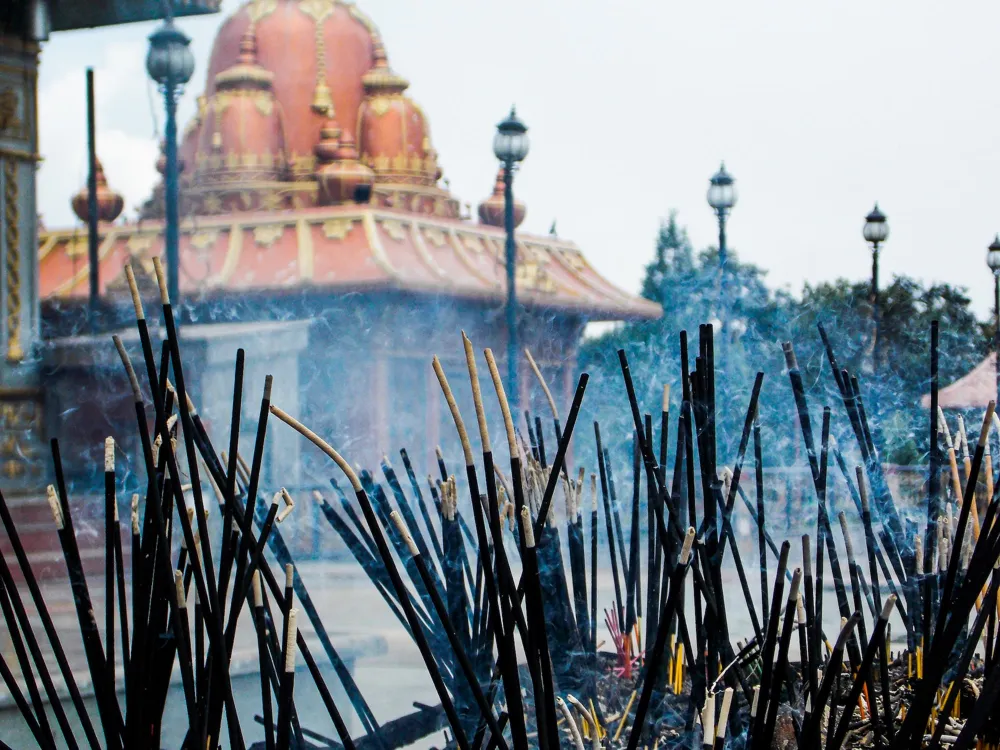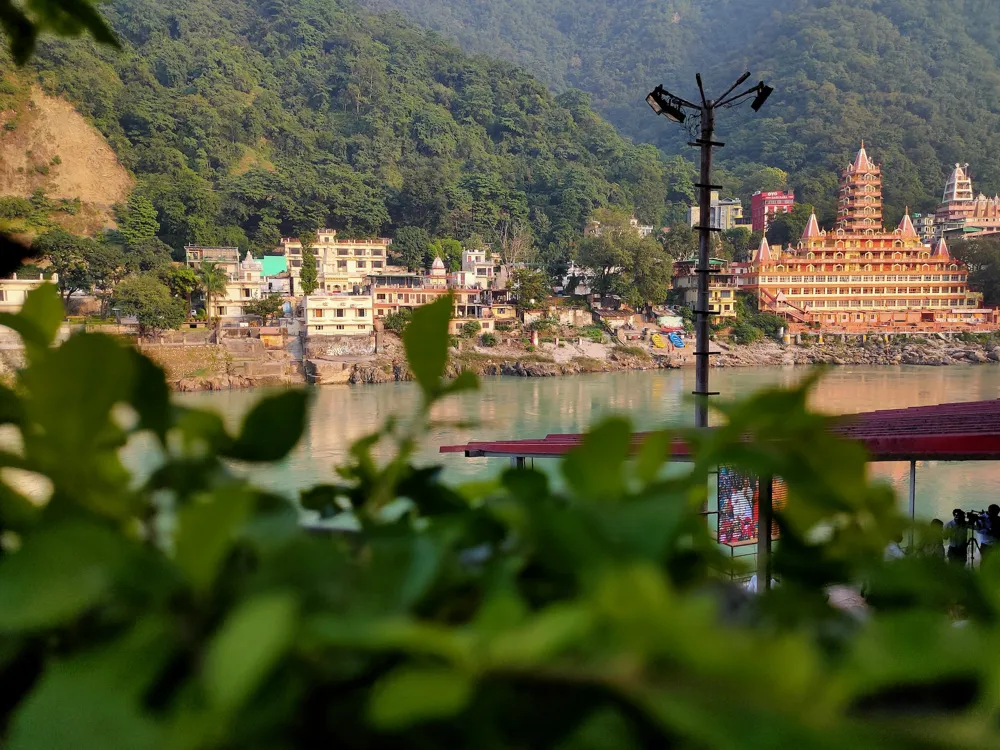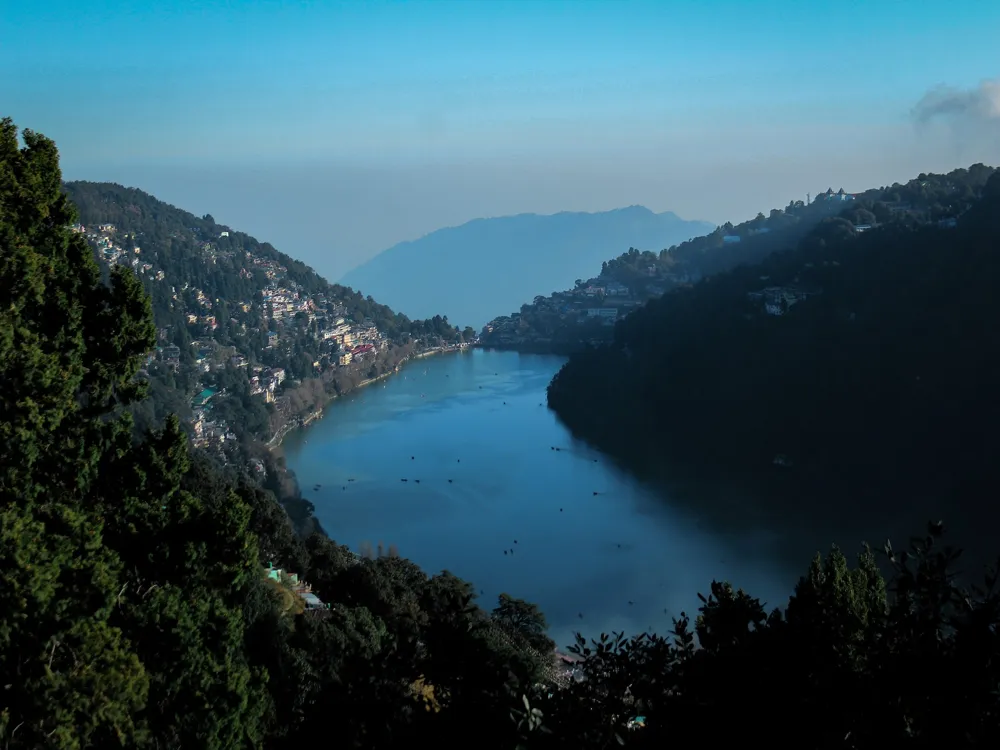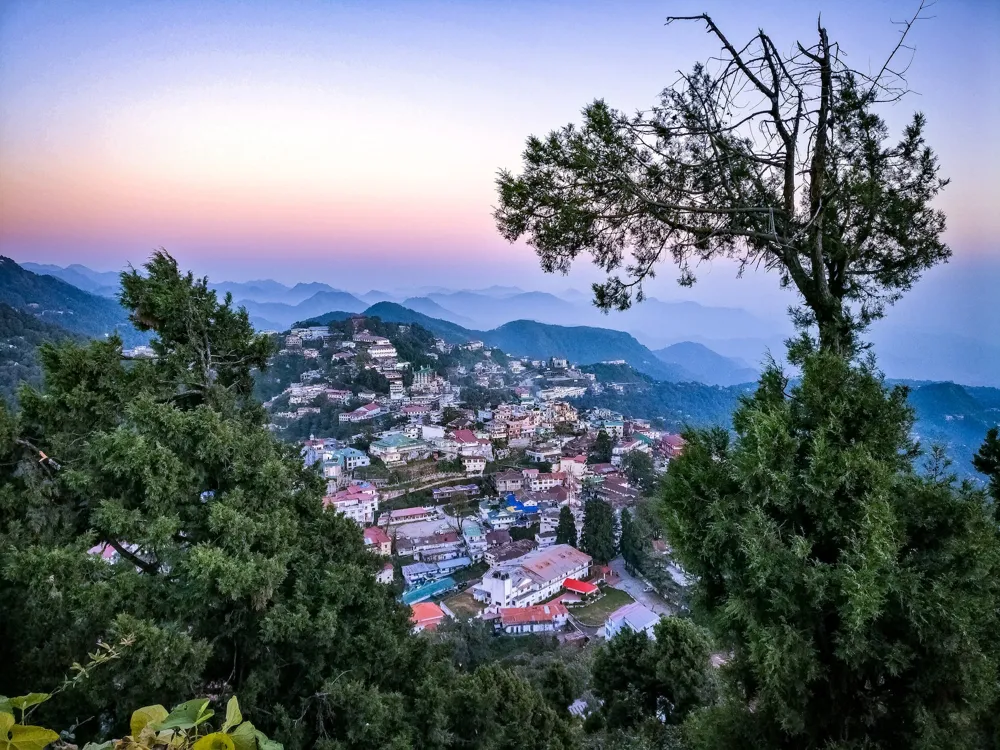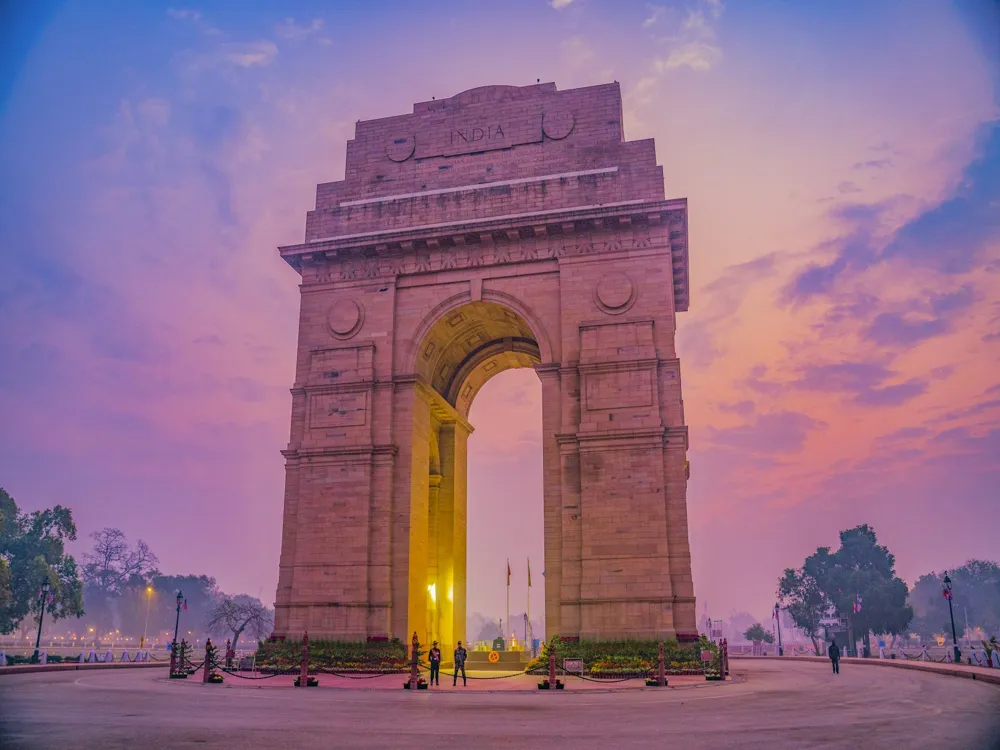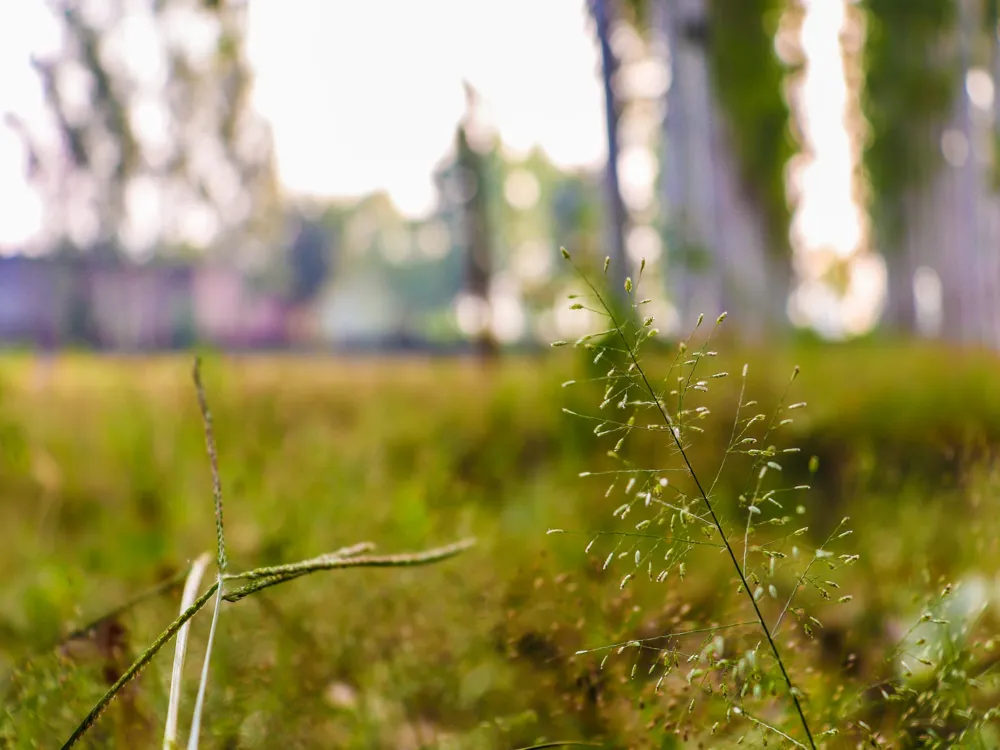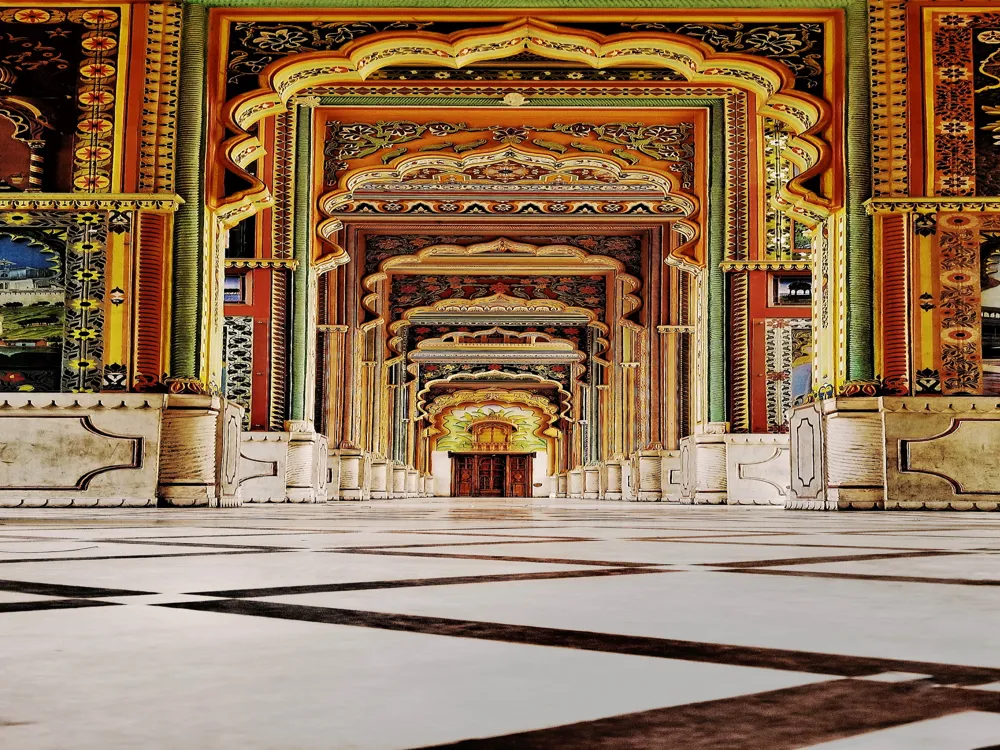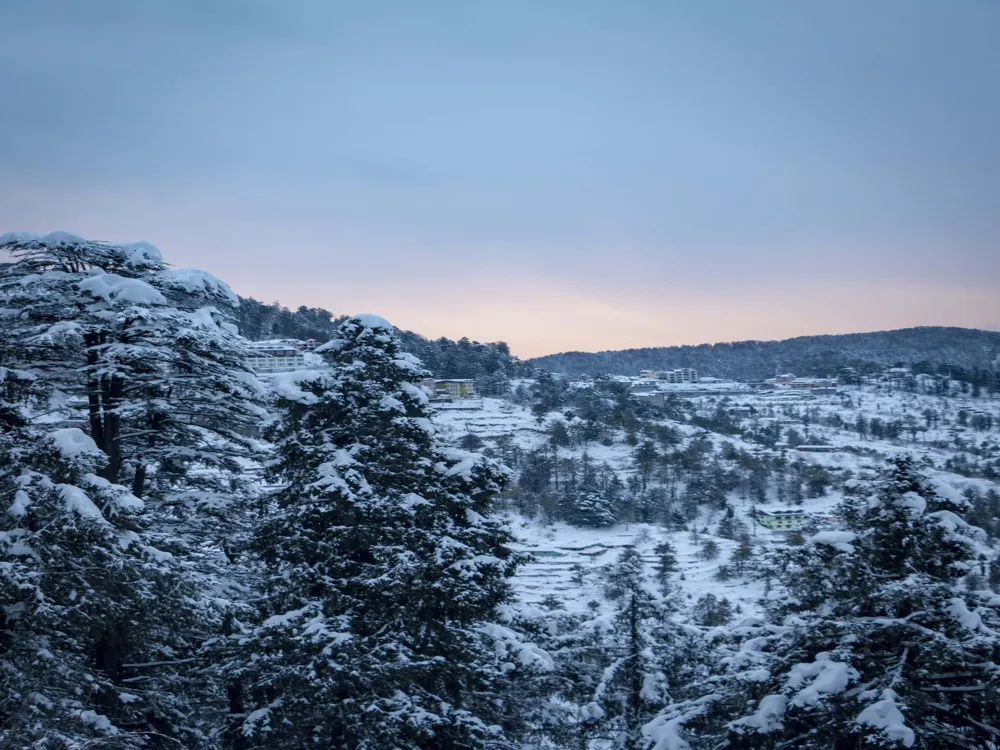Akshay Vat Vatika, located in the heart of Muzaffarnagar, Uttar Pradesh, stands as a testament to the rich cultural and historical heritage of India. This exquisite garden, named after the sacred 'Akshay Vat' or the immortal banyan tree, is more than just a scenic spot; it's a fusion of nature, spirituality, and architecture. The Vatika is not only a symbol of natural beauty but also holds a significant place in the hearts of the locals and tourists alike. It's a place where nature's tranquility meets the echoes of the past, making it a unique destination for visitors from all over the world. The 'Akshay Vat' or the immortal banyan tree holds a deep spiritual significance in Indian culture. According to mythology, this tree represents eternal life. It's believed that the Akshay Vat has the power to fulfill wishes and is revered by many. The presence of such a sacred tree in Akshay Vat Vatika adds a spiritual dimension to the garden, attracting not only nature lovers but also those seeking spiritual solace. The biodiversity of Akshay Vat Vatika is one of its most captivating aspects. The garden is home to a variety of flora including exotic flowers, ancient trees, and an array of plant species that create a mesmerizing green canopy. This rich vegetation supports a diverse range of fauna, making the garden a haven for birdwatchers and wildlife enthusiasts. Akshay Vat Vatika is not just a garden; it's a hub of community and cultural activities. Throughout the year, the garden hosts various events that showcase the rich traditions and customs of Uttar Pradesh. These events provide a glimpse into the vibrant cultural tapestry of the region and offer a unique experience to visitors. The architecture of Akshay Vat Vatika is a blend of historical elegance and modern design. The garden's layout is a masterpiece of landscape architecture, with well-defined pathways, ornate fountains, and strategically placed seating areas that offer a panoramic view of the surroundings. The integration of traditional Indian architectural elements with contemporary design makes the Vatika a visual delight. The design of Akshay Vat Vatika is rooted in the principles of harmony and balance, reflecting the ethos of Indian culture. The architects have skillfully blended the elements of nature with man-made structures, creating a space that is both aesthetically pleasing and spiritually uplifting. The use of natural materials like stone and wood in the construction complements the lush greenery of the garden. The influence of Mughal and Hindu architectural styles is evident in the structures within Akshay Vat Vatika. The intricate carvings, domes, and arches are reminiscent of the grandeur of Mughal architecture, while the use of motifs and symbols reflects the essence of Hindu temple architecture. This fusion of styles gives the Vatika a unique character and adds to its historical significance. In keeping with contemporary demands, Akshay Vat Vatika is equipped with modern amenities that ensure a comfortable experience for visitors. The garden's design also incorporates sustainable practices like rainwater harvesting and the use of solar energy, showcasing a commitment to environmental conservation. The ideal time to visit Akshay Vat Vatika is between October and March when the weather is pleasant, making it perfect for exploring the garden. Consider taking a guided tour to gain deeper insights into the history and architecture of the Vatika. Visitors are advised to dress modestly and respect the local customs and traditions. Akshay Vat Vatika is easily accessible from various parts of Muzaffarnagar and neighboring cities. Visitors can reach the Vatika by public transport, including buses and taxis, available from major points in the city. For those driving, ample parking space is provided near the garden. The nearest railway station and airport are well-connected, offering convenient options for travelers from different parts of the country. Read More:Overview of Akshay Vat Vatika, Muzaffarnagar, Uttar Pradesh
Significance of Akshay Vat in Indian Culture
Flora and Fauna of Akshay Vat Vatika
Community and Cultural Events
Architecture of Akshay Vat Vatika
Design Philosophy
Influence of Mughal and Hindu Architecture
Modern Amenities and Sustainability
Tips When Visiting Akshay Vat Vatika
Best Time to Visit
Guided Tours
Cultural Sensitivity
How To Reach Akshay Vat Vatika
Akshay Vat Vatika
Muzaffarnagar
Uttar Pradesh
NaN onwards
View muzaffarnagar Packages
Muzaffarnagar Travel Packages
View All Packages For Muzaffarnagar
Top Hotel Collections for Muzaffarnagar

Private Pool

Luxury Hotels

5-Star Hotels

Pet Friendly
Top Hotels Near Muzaffarnagar
Other Top Ranking Places In Muzaffarnagar
View All Places To Visit In muzaffarnagar
View muzaffarnagar Packages
Muzaffarnagar Travel Packages
View All Packages For Muzaffarnagar
Top Hotel Collections for Muzaffarnagar

Private Pool

Luxury Hotels

5-Star Hotels

Pet Friendly








